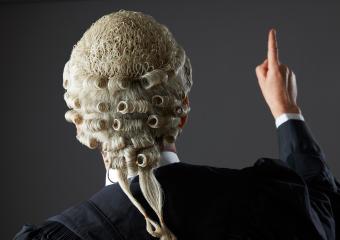Acid reflux in drink driving cases
A question we are regularly asked is whether acid reflux can provide a defence in drink driving cases. The simple answer is “no”; the more complicated answer continues, “but it may be special reason that allows you to escape a driving ban”.
Acid reflux is the process by which stomach acid rises from the stomach into the throat and mouth. Most of us will experience it as that unpleasant burning sensation in the chest and back of the throat, particularly after a heavy meal. Gastro-oesophageal reflux disease (GORD) is the name for chronic reflux.
The erratic reflux experienced after a meal is likely to be detected by an evidential breath test machine with either the error warning, “mouth alcohol” or because the irregular nature of the reflux causes the two specimens of breath you provide to have vastly different alcohol contents as one contains alcohol from the stomach while the other either doesn’t or contains a different amount of alcohol. Some people suffering GORD may experience a more constant flow of gas from the stomach, particularly if the sphincter that seals the top of the stomach has become weakened. In that case, it can cause a relatively constant flow of gas from the stomach to the mouth meaning that the evidential breath machine may not detect mouth alcohol as it is more likely to be a gas than a liquid or spot a difference between the two specimens of breath and thus may record an inaccurately high breath alcohol reading.
So, if that’s happening why isn’t it a defence? The answer to that is simple. Drink driving is a strict liability offence, that means you are guilty if you drive over the limit and the reason you did it is irrelevant.
That said, acid reflux can be a special reason for avoiding the driving ban that would normally flow from a drink driving conviction.
The law has developed in what some might call a patchwork way over the years – other less generous commentators might call it a muddle. The general rule in drink driving with excess alcohol cases is that medical conditions that were unknown to the driver cannot be a special reason – it’s worth noting that this does not apply where you are charged with driving while unfit through drink or drugs, see our main drink driving page for the difference. However, Woolfe v DPP tells us that acid reflux can be a special reason even, it seems, if you were not aware of the problem at the time you drove.
Woolfe created a three-point test that drivers must satisfy if they are to win a special reasons trial:
- The amount of alcohol consumed is insufficient to exceed the prescribed limit – this will need to be established through medical evidence in the form of a blood-alcohol concentration report.
- The driver regurgitated alcohol into the machine each time he blew into it.
- The regurgitated alcohol caused the defendant to exceed the drink driving limit.
The fact that the driver has chronic acid reflux will require medical evidence to succeed. That could be in the form of post-charging testing or it could be evidence from a GP who has diagnosed the condition.
It is for the defence to satisfy the court on the balance of probabilities that the recorded alcohol level is the result of acid reflux. That means that you must convince the court that your explanation is more likely than not to be correct. It is a far lower test than the criminal standard the prosecution must reach, which is so that the court is sure you are guilty.
Because the defence must prove their case it is vital that the evidence is properly prepared by a solicitor with the skill and experience to handle your case. If you would like to discuss your case with one of our expert solicitors, then call us now on 020 8242 4440 or send us an email via our contact page.

